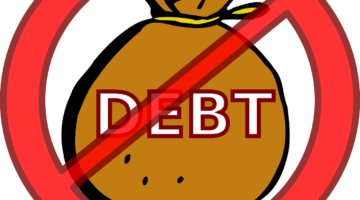Before filing a bankruptcy we often advise clients to move bank accounts to another lender where they don’t owe any debts. When a borrower defaults on a debt to a lender, that lender can offset the defaulted debt against any funds they’re holding in an account. There are restrictions on a lender’s right to setoff funds however. One of the most important is that the FCBA prohibits a credit card issuer from offsetting funds in an account to satisfy aRead more
Modifying a Chapter 13 Plan
Clients considering a Chapter 13 bankruptcy are often afraid they’ll be stuck in a payment plan they can’t afford if something changes. Your life doesn’t stop just because you file Chapter 13 bankruptcy so the chances of unforeseen circumstances disrupting a budget are good. Some clients go the entire 3-5 years without needing a modification but don’t worry if something happens that requires a change in the plan payment. Unforeseen Circumstances May Include Job loss car repairs home repairs medical bills, taxRead more
Health Impacts of Too Much Debt
Two recent studies document the serious health risks of not dealing with high debt levels. First New Study The latest study published in August 2013 from researchers at Northwestern University’s School of Medicine looked at the psychological and general health conditions of young adults between the ages of 24 and 32. The study found that adults with high debt had: increases in high blood pressure higher levels of perceived stress symptoms of depression Previous studies had found similar correlations betweenRead more
Cosigned Debt in Chapter 13
What Is Co-Signing? Co-signing a loan for someone means you’re making yourself fully responsible for repayment of the loan. While there may be an agreement between the co-signers as to who is going to make the payments, the lender doesn’t need to honor that agreement. They just want to see the loan repaid, regardless of who pays. What Happens When You Include Chapter 13? When a Chapter 13 bankruptcy is filed an “automatic stay” goes into place that prevents lendersRead more
Former Bank of America Employees Claim They Lied About Mortgage Modifications
Bank of America Lied? It probably won’t come as a shock to homeowners with a Bank of America mortgage loan. In affidavits filed in federal court in Boston last month, several former Bank of America employees claimed they were told to lie to homeowners about the status of their mortgage modification applications. According to the former employees, Bank of America instructed them to lie about: if mortgage modification documentation had been received whether their application was being reviewed or theyRead more
Are You Going to Court in Chapter 13?
People who file bankruptcy almost never “go to court” in Chapter 13 or see a judge. The only mandatory hearing will take place about a month after filing. That meeting with the trustee provides him or her an opportunity to ask questions about the budget and proposed repayment plan. Cre A portion of the meeting usually lasts no more than five minutes. Although they may have to be there longer to wait their turn. The hearings are nothing to beRead more
Making Chapter 13 Plan Payments
What Should You Expect? Clients in Chapter 13 bankruptcy can make their Chapter 13 plan payments several ways. In Iowa the Chapter 13 trustee doesn’t accept personal checks and can’t do withdrawals from bank accounts but money orders or cashier’s checks can be mailed to the trustee each month. The debtors’ name and case number should be put on the money order or cashier’s check. The best way to make plan payments is a wage deduction order. These wage deductionsRead more
Right to Cure Credit Card Debts
What Are Your Rights in Iowa? Iowa law requires a creditor to provide a debtor with a written notice of their right to cure a delinquent amount. This must happen before a lawsuit can be filed to collect a consumer debt. The notice must provide the debtor at least 20 days to pay the defaulted amount. The notice to cure also has to include a statement of the total amount to be paid, plus an itemization of the charges. FailureRead more
Independent Foreclosure Review Payments
Have You Received a Foreclosure Review Payment? Several clients have begun receiving checks as a result of errors made by mortgage servicers. Unfortunately, the payments don’t begin to cover the actual loss suffered by many who lost their homes to foreclosure. Or if they had to put up with multiple mortgage loan modification errors or problems. Nearly four million people are eligible for the payments. The payments range from $300 to $125,000 depending on the type of servicing error. Only aboutRead more
Will There Be More Chapter 11s?
Why More Chapter 11s? When the 2005 bankruptcy law was adopted by Congress it created a new “means test” that borrowers had to pass to qualify for a Chapter 7. Congress limited this requirement only to debtors with primarily consumer debt. Debtors who had incurred most of their debt from a failed business could avoid having to pass the means test in order to file Chapter 7. The provision allowed business debtors to file Chapter 7 even though their budgetRead more
- « Previous Page
- 1
- …
- 10
- 11
- 12
- 13
- 14
- 15
- Next Page »












